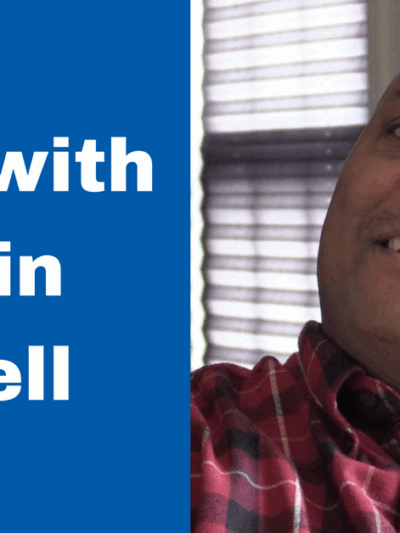News & Commentary
“No Justice. No Peace. No Private Police.”
“No Justice. No Peace. No Private Police,” was a chant that rang through the Charles Village and Waverly neighborhoods last Wednesday. On the 300th “West Wednesday,” John Hopkins University students and community members gathered together to rally against JHU’s planned private police force and contracts to train employees of the U.S. Immigrations and Customs Enforcement. While dozens of campus security watched ominously from the sidelines, people marched peacefully in the streets and then rallied inside JHU’s administration building.
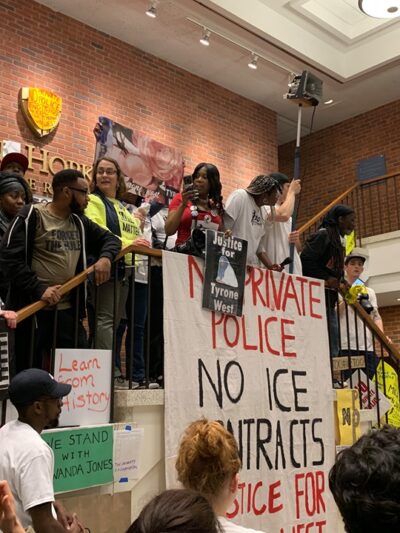
The MeToo Era: Sonya Zollicoffer’s Story
In the era of MeToo, brave people continue to speak out against sexual violence. Sonya Zollicoffer has joined voices across the nation by exposing the truth about the sexual harassment she endured while she was a police trainee in Prince George’s Police Department in 2001. Zollicoffer has also filed a legal challenge, along with members of the United Black Police Officers Association and the Hispanic National Law Enforcement Association, to racial discrimination and retaliation against officers and community members of color in the PGPD.
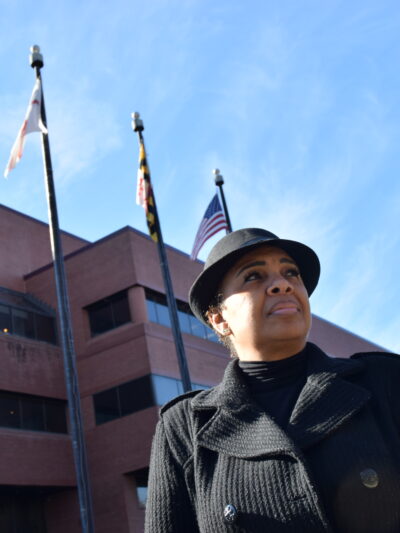
The Ongoing Fight for Justice in Detective Savage’s Case
In Pocomoke City, a small town on Maryland’s lower Eastern Shore with a centuries-long history of racial oppression, three Black officers have fought against racial abuse from white coworkers, supervisors, and officials. In 2016, Police Chief Kelvin Sewell, Lieutenant Lynell Green, and Detective Franklin Savage sued officials in Worcester County and Pocomoke City, challenging a conspiracy of race discrimination and retaliation. This week, Chief Sewell and Lt. Green reached financial settlements for the racism they endured while on the force, as well as a Consent Decree to bring reform to the Pocomoke City Police Department. But the fight for justice still continues for Detective Savage.
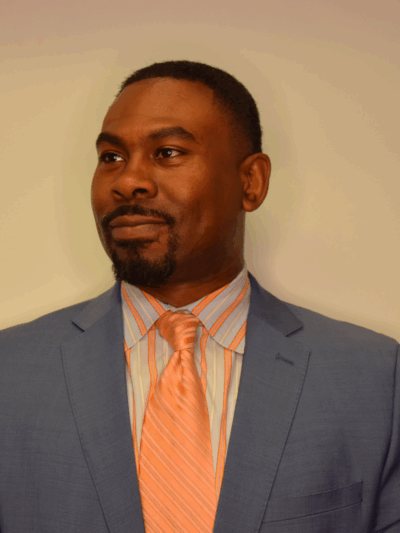
Let’s Pass the LETT Act for Greater Police Accountability in Montgomery
On June 11, 2018, a Montgomery County police officer fatally shot Robert White, an unarmed Black man who was walking in his own neighborhood. So far, no one has been held accountable for his death. Shamefully, this is not surprising. An ACLU report found that between 2010-2015, at least 130 people across Maryland died in police encounters. Eleven of those individuals were in Montgomery County. There was no accountability: Police were criminally charged in less than 2% of those cases.
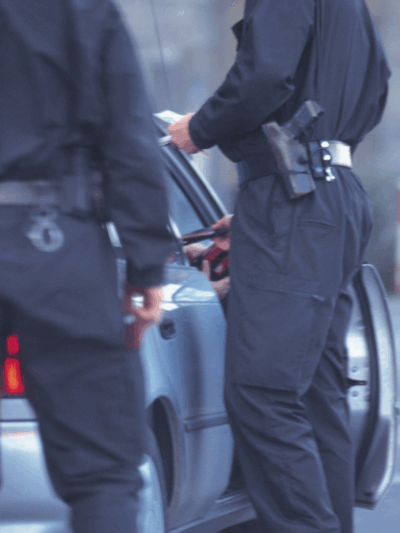
24 Hours Can Make All the Difference
Just one 24 hour period in my work this week showed how dangerously misguided Baltimore leaders continue to be in their efforts to reduce violence. They are looking once again to "tough on crime" policies that lock up more Black residents, for longer periods of time.
By Meredith Curtis Goode

Baltimore City Cannot Evade Responsibility For The Gun Trace Task Force
When Baltimore City’s chief lawyer Andre Davis reaffirmed several weeks ago that the City would not always agree to pay punitive damages judgments awarded against Baltimore Police Officers who intentionally and flagrantly abuse their authority, many people in Baltimore, including us at the ACLU of Maryland, cheered. The hope was that holding officers personally accountable for paying those (very rare) punitive damages would help deter that kind of egregious misconduct. So when the City announced after the verdict in the Gun Trace Task Force (GTTF) trial that it would not pay any damages awarded against the officers who plead or were found guilty, it is not surprising that some people also saw that as a step forward for individual police accountability. But it isn’t. Instead, it is a transparent attempt to again shift the cost of the BPD’s own repeated and systemic failures onto the people who have been victimized.
By David Rocah

Is Jeff Sessions Justice Department Trying to Kill Police Reform in Baltimore?
UPDATE: As this blog post was being sent to press, the court denied the Justice Department's request to delay Thursday's hearing. The court said, "The Government's motion is untimely. To postpone the public hearing at the eleventh hour would be to unduly burden and inconvenience the Court, the other

Baltimore Police Secretly Running Aerial Mass-Surveillance Eye in the Sky
Bloomberg Businessweek reported late Tuesday that the Baltimore police have been subjecting that city to a vast and powerful aerial surveillance system since January, without telling, let alone asking, the public that they serve. This is a big deal.

Stay Informed
Sign up to be the first to hear about how to take action.
By completing this form, I agree to receive occasional emails per the terms of the ACLU’s privacy statement.
By completing this form, I agree to receive occasional emails per the terms of the ACLU’s privacy statement.

